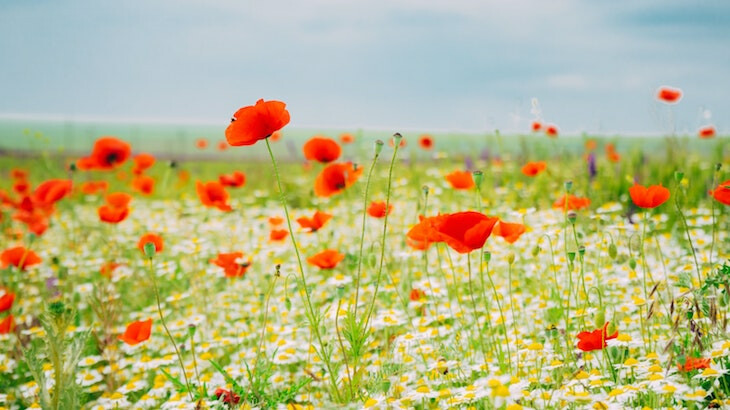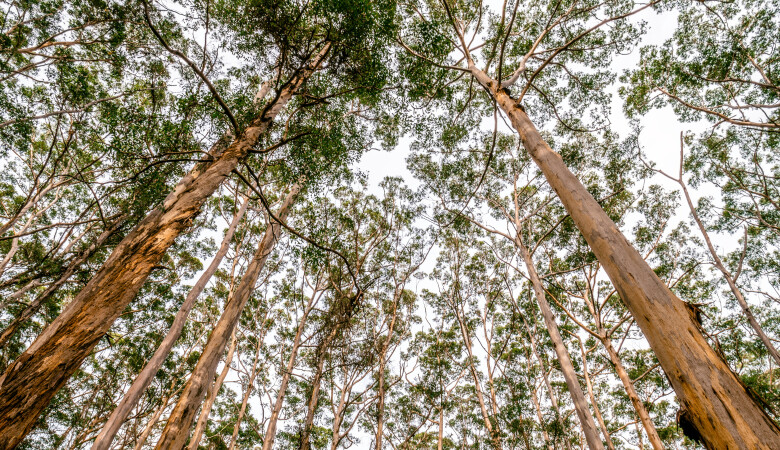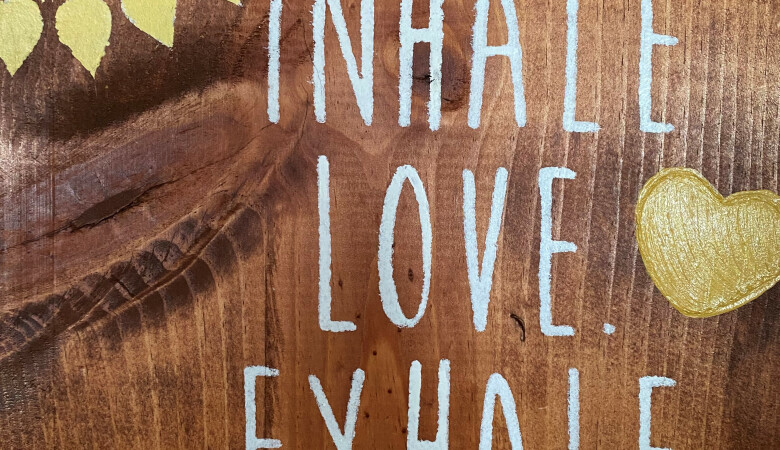Caring Community by Sue Stafford, Marjorie Ropp and the Rev. Sarah Stewart
August 29, 2021
Reflection by Sue Stafford
At her Sunday service a few weeks ago, Liz Gustavson offered a reading, “Helping, Fixing, or Serving” authored by Dr. Rachel Naomi Remen, a physician who herself suffers from Crone's disease. Dr. Remen writes often for her fellow physicians, to raise awareness of the differences between helping their patients, fixing them or serving them. Some parts of her wisdom can be applied here in our church community as we endeavor to serve others in the community as well as to support each other.
Perhaps others of you who are taking part in the service today feel as I do when someone offers to help. I fear that I appear needy or helpless. I have often wondered if my yankee upbringing to “stand on my own two feet” or my Unitarian Universalist tendency toward independence get in my way. Some people may consider me just plain stubborn. Dr. Remen lists one of the characteristics of helping as “deepening the power differential” between people. It enables the “helper” to view people as weak and needing assistance. And it may well cause people receiving help to feel inept.
My reason for being here today is to share with you a past experience I had receiving help from my caring circle, the Red Caring Circle, here at First Unitarian. Several years ago my husband became ill and entered a long-term care facility, a permanent move. Many of my family, friends and members of the church community came to visit, brought casseroles and bouquets of flowers, and telephoned often during that difficult transition. One early spring day, Diane Mirick, the leader of the Red Circle, phoned to check in. We had a lovely chat, and she asked if I might need anything: a visit, a casserole, the loan of a good book. I could think of nothing at that point until we were about to end the conversation. It was only then that I remembered that I had not had time to do even one thing outdoors for a fall yard clean-up months earlier. I mentioned only that to her before saying good-bye, Shortly afterwards, the phone rang again. It was Diane, asking, “What are you doing Saturday?” “I should be home, I think,” I replied. “Will you make a list of what needs doing outdoors? I have contacted some people who can be over that morning.” Wow, I hadn't expected that. I told her coffee and muffins would be waiting when they got to the house.
I had NO IDEA what Saturday would bring. Cars, even trucks, kept showing up. Smiling friends from church left their vehicles carrying their rakes, shovels, pruning shears (all labled with their names), plates of cookies, loaves of bread, bagels, and fell upon the tasks. Leaves were raked and composted, perennials thinned, weeds pulled, bushes trimmed, trees pruned, compost piles turned, blueberry bushes mulched with pine needles, so many tasks I hadn't even thought of. One of the happiest parts for me was everyone gathering around the kitchen island feasting on baked goods and coffee and congratulating ourselves on work well done.
I haven't forgotten their kindness and likely never will.
To be honest, as grateful as I remain, I am one of those people who is reluctant to ask for help. It feels much easier to offer help to someone else than it does to receive it. More than once I have participated in our Church Yard Clean-up. I have given rides to appointments, baked casseroles and made soups, cleaned out a dreaded closet or two, hauled bags and boxes to charity drop-offs, all for others, and I've been happy to do it. Receiving is harder.
***
Since the 18th and 19th centuries in North America, there have existed work parties, many for accomplishing tedious tasks. We might recognize them as quilting bees, gatherings for corn husking, sewing, barn raising, or log rolling, and, in many eastern European countries, they might have centered around community service tasks such as street cleaning, collecting neighborhood recycling, or fixing public amenities. All had the benefit of creating community through communal work. I have often wondered if any farmer in those days was ever hesitant to ask others to help raise a new barn after his former one had been destroyed in a storm. Everyone needed a barn to secure their livelihood, and tradesmen to hire in those very remote locations was not an option. Community was essential. There was no “going it alone”.
I have continued to reflect on that spring day when all those Red Circle friends showed up at my house. I am quite sure that community building happened that day. We rolled up our sleeves together and got to work. At the end of the day, we were tired but proud of a job well done by all of us together. Each one of us was an equal in the project. And to quote Dr. Remen,” All suffering is like my suffering and all joy is like my joy.”
Reflection by Marjorie Ropp
When Paul and I first came to this church way back in the early 1990’s, we knew only about 2 people here. We came on Sunday morning, sang in the choir, enjoyed the music and Barbara Merritt’s sermons and then went home. Then after a while we started staying for coffee hour, and got to know a few people. Pretty soon, someone asked us to start serving on committees. I was on the first Lay Leadership Committee. Paul joined the planning committee for the Religion In Our Times (Sunday noon) group. I was part of the Small Group organizing and Paul served as an “Assessor” and then Moderator. As we got more involved, we met more and more people and made so many good friends. As we contributed more to this community, we got so much more back.
Being human, we are social animals. We need human connection in order to survive. Now, I appreciate solitude and I need alone time to re-group and re-charge, but isolation and loneliness are not good. Studies have shown that one of the most important determinants of living long and healthy lives is connection to caring individuals. Connection is right up there with exercise in determining longterm health.
There came a time when I truly learned what the First U Caring Community means. When my husband Paul was diagnosed with brain tumors in the summer of 2018, he underwent brain surgery. Low and behold, Sarah showed up at his bedside when he was still in the ICU. I hadn’t called her but someone had told her about Paul. I didn’t realize until she came how much we needed that visit.
This was only the first of several visits Sarah made in the months that followed. During Paul’s final months so many First U friends reached out to us, invited us for meals, sent cards and expressed concern. We felt surrounded, enclosed in the arms of the caring community.
This community became my lifeline after Paul’s death in April 2019. The Sisterhood organized and brought meals for my 35+ family members who came from out of town for the Memorial service. Many people brought us food and gifts and sent cards. Will Sherwood and the Choir sang so beautifully at Paul’s Memorial Service. The Men’s Group came and did some yard clean-up that Spring. I was alone but not lonely. I was sustained by this wonderful community. I feel blessed and I am so grateful for this community, for all of you. I hope if the need arises that I can in turn be a care giver for you. Thank You!
Reflection by Rev. Sarah Stewart
Earlier this year, I had to have unexpected surgery. I had a small benign tumor in a salivary gland which had to be removed. It was frightening. I didn’t know for sure that the tumor was benign until it was out. We were in the second surge of the pandemic, so my husband Andy had to drop me off at the front door of the hospital and leave me on my own to wait and get ready. The surgery went very well, and I was fully recovered several weeks later, but like any medical procedure, it was unnerving when it happened.
Despite the COVID restrictions, however, I was never alone. All of you, the members of this parish, were with me. You sent me e-mails and cards of support and encouragement. You asked how you could help. If we had needed food, you would have overwhelmed us with casseroles. The larger Unitarian Universalist community was there for me, too. The Rev. Mandy Beal, who used to be on our staff, stepped in with a sermon for the Sunday I had to miss. Ministers were praying for me and checking to see how I was. I felt the love from our church and from our larger Unitarian Universalist community.
Offering care to one another is a core aspect of our mission at First Unitarian Church. In fact, wanting to be of service to others is the third most common reason people participate in a religious community at all. And caring for one another brings us joy.
In 1997, the First Unitarian bylaws indicated that the parish should have a “Parish Services Committee.” They stated, “The committee shall be generally responsible for providing support services to people in the church community who are in crisis and/or in need of some form of assistance.” (In an earlier version of the bylaws, care was limited to those people who “are not able to attend worship services regularly”—the church must have realized that not coming to church was not the only crisis its members faced!).
In 2016, we reaffirmed caring in our mission statement: “We choose to live in community,” we wrote. “We are called to be present to one another in suffering…” Although our current bylaws leave the exact nature of a caring committee more open, caring remains one of our core values as a church.
In March of 2012, a Caring Communities Task Force laid out a recommendation for organizing caring within First Unitarian Church. Their mission statement: “In this congregation we covenant to care for each other. As a sacred community we work to deepen our connection with others and affirm our inherent worth. Here we are called to be present to one another and to serve one another. Helping each other binds us together and feeds our souls.”
Out of that task force was born the Caring Circles program. Caring Circles have been geographically-based networks of our members and friends, with co-leaders for each circle. The idea was that in a neighborhood, our members would get to know each other through social events and be available to care for each other in times of crisis or loss. Over the past ten years, this has often worked very well. Circles with consistent leadership were able to work together to create community and provide care for their members. Other circles, however, would face a gap in leadership and the system would fall apart. Knowing what circle a new member of the was in was difficult. Often, when a member needed help, they turned to their friends in the parish rather than their circle. In circles with a high number of requests, the same people were asked again and again for help, when there were other members of the parish who would have been happy to be of service. So after 10 years, it is time to thank our wonderful Circle Leaders over the years and look to a new system of organizing care within the Second Parish. We’ll have a special thank-you at the end of today’s service.
Three years ago, we began researching what models of mutual care were working for other Unitarian Universalist congregations. What we found is that members of the church usually want the opportunity to be of service to others. They want to indicate how they like to help, and they want to be asked to help in those ways. On the other side, when people need help, it can be hard to ask for it. It helps to have one point of contact, one e-mail address to write to, one place for the minister to go when she learns of a need in the parish.
What has worked best for our sister congregations is to have a small committee that handles this flow of information. They survey the congregation every year to find out how people might like to help: rides, dinners, childcare, yardwork or light housework in times of crisis. They maintain an e-mail address where members can write to ask for assistance. They communicate to the congregation that this is work we all share. And they embody a ministry of mutual responsibility, so they are sure to ask volunteers to help in times of need instead of doing it all themselves. They recognize that an opportunity to help someone is a privilege and an honor, and they are eager to share that around the whole church.
We are adopting this plan. A new team, the Congregational Support Network, is forming to help us connect to each other and support each other in times of crisis. That way we know that no one who needs help will be left out, and no one who wants to help will be excluded. We will care for one another.
Last year, of course, caring took on a whole new level of importance. When the pandemic hit, suddenly our usual ways of being in touch with our community were gone. We didn’t see each other on Sundays anymore. We didn’t know how anyone was doing during the pandemic, if they had what they needed, and if they knew how to stay connected to their church.
A team of over a dozen volunteers reached out to every single member and friend of our church to check in. Some made one-time calls; others began telephone relationships that lasted throughout the pandemic. The need was clear, and the need was met. The church was a church even when our meetinghouse was empty.
This morning we have heard stories of caring and reflect with each other on how caring has manifested in our own lives. It is truly spiritual work, to give and receive care. Every casserole, every note, every car ride, every telephone call is an act of love, through which we know and embody the divine.
Series Information

Summer services at First Unitarian Church are led by members of the church, guest preachers, and our minister.


